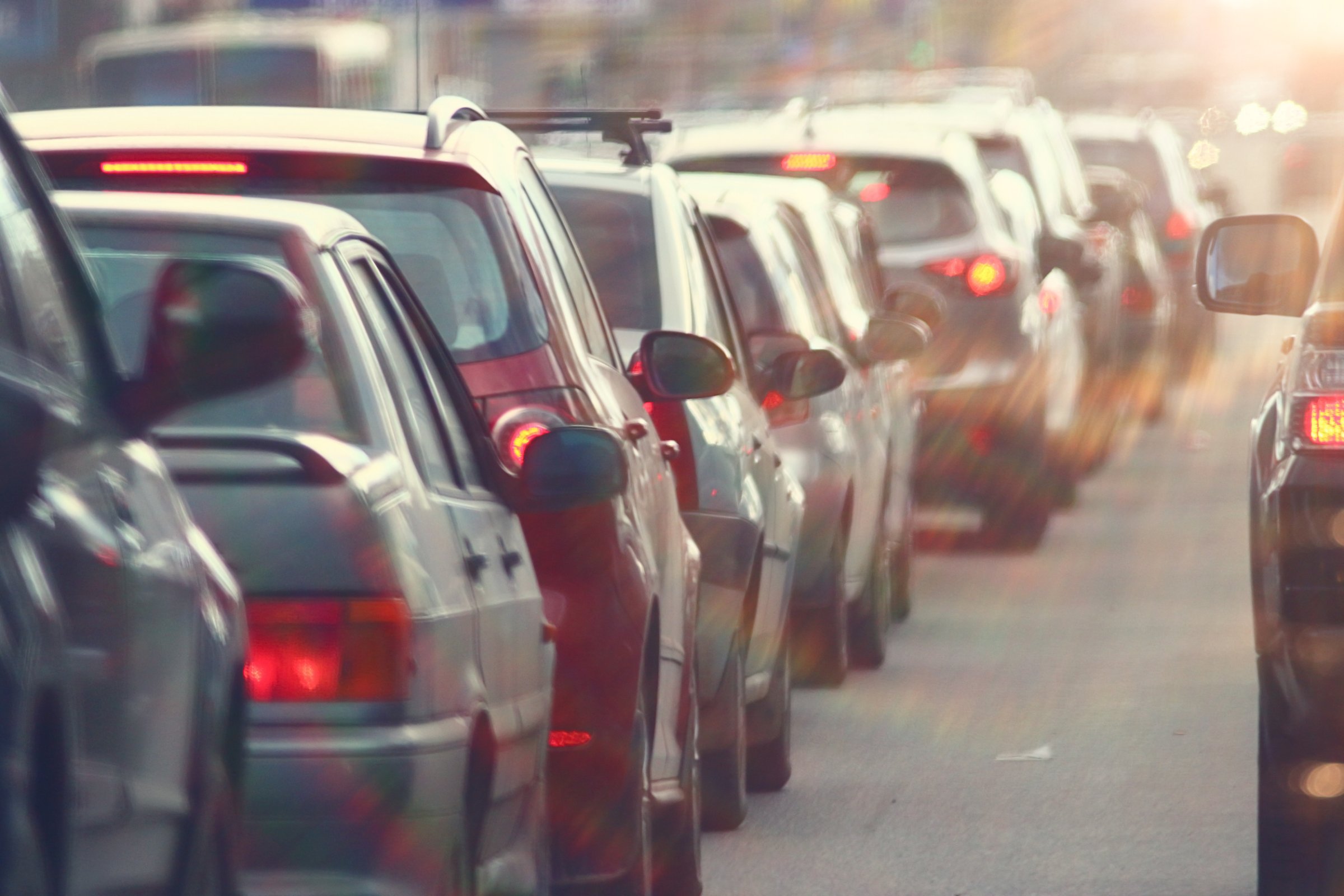
Most non-electric motor vehicles emit multiple airborne pollutants, including nitrogen dioxide, hydrocarbons, and ultrafine chemical particles. Breathing in these pollutants can cause or contribute to a wide range of health problems, from heart and lung disease to neurological, reproductive and immune system dysfunction.
Studies have repeatedly found that people who live near busy roadways are at elevated risks for these health issues. Young children, the elderly, and people with lung disease are especially vulnerable to vehicle-emitted pollution. But anyone who spends a lot of time commuting and sitting in heavy traffic—especially on hot, sunny days, when heat and sunlight speed up the chemical reactions that produce ozone and other airborne pollutants—faces a heightened risk for air-pollution-related illness.
Rolling up the windows can help keep out some of that noxious air, and a car’s cabin filter and A/C settings can reduce the amount of pollutants that get into the vehicle. Most drivers are familiar with the filter that scrubs the air that’s pulled into a vehicle’s engine. (This is the one a mechanic inspects and offers to replace during a routine oil change.) But a cabin filter is something different. It’s usually located behind the glove box, and its job is to clean the air that the vehicle’s occupants breathe. But not all car cabin filters are created equal.
In 2014, the journal Environmental Health published a study finding that factory-installed cabin air filters remove 46% of particulate pollution, but they do not clean the air of nitrogen dioxide (NO2) or hydrocarbon pollutants. To do that, a cabin filter needs an activated carbon (a.k.a. “charcoal”) filtering element, which can cut down levels of NO2 and hydrocarbons by 75% and 50%, respectively, per the study.
These filters are available online and in auto parts stores, and installation is usually easy. (Search for terms like “cabin air filter,” along with “charcoal” or “activated carbon.” Just be sure you’re choosing the right model for your car.) But finding a good one can be tricky. “Unlike HVAC filters for indoor environments, car cabin filters don’t have ratings to show consumers which ones are really effective,” says Yifang Zhu, a professor of environmental health sciences at the UCLA Fielding School of Public Health. Zhu is referring to high-efficiency particulate air (HEPA) and minimum efficiency reporting value (MERV) designations, which are regulated standards that make clear an indoor air filter’s ability to clean pollutants in a home or office.
Buying a car cabin filter that’s labeled “high-efficiency” and that includes an activated carbon element should provide an upgrade compared to whatever’s installed in the car by its manufacturer. But there are no guarantees—”high-efficiency” is essentially just marketing copy. In any case, Zhu says changing the cabin filter every six months to a year (depending on how much a person drives) should improve the air quality in that vehicle.
Switching on the A/C system’s “air recirculation” function can also help. “This shuts down the air exchange between the inside of the vehicle and the outside, and instead uses recirculated air,” she says. Some of her research shows that this can cut down the cabin’s levels of particulate pollutants by as much as 90%.
But it’s important not to recirculate air all the time. Zhu’s study found that, within 15 minutes of turning on this function, exhaled carbon dioxide (CO2) from just one or two people can build up to concentrations of between 2,500 and 4,000 parts per million. At that level, CO2 can cause poor decision-making, as well as drowsiness, headaches, and mild nausea. If you’re stuck in traffic longer than 15 minutes, Zhu recommends turning the recirculation function off for a minute or two so that the CO2 can dissipate, then turning it back on. Taking these measures won’t eradicate your exposure to vehicle pollution. But they can make a big difference.
More Must-Reads from TIME
- Cybersecurity Experts Are Sounding the Alarm on DOGE
- Meet the 2025 Women of the Year
- The Harsh Truth About Disability Inclusion
- Why Do More Young Adults Have Cancer?
- Colman Domingo Leads With Radical Love
- How to Get Better at Doing Things Alone
- Michelle Zauner Stares Down the Darkness
Contact us at letters@time.com